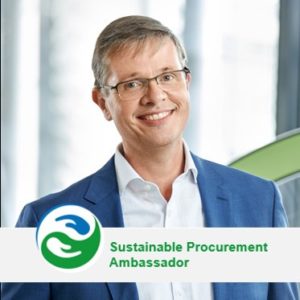Our “Procurement Experts on CPO Rising” series continues today with an excerpt from my 2022 episode of the Procurement Rising Podcast – Thomas Udesen, Chief Procurement Officer at Bayer (click to listen to the full interview). Note that this excerpt has been edited for readability.

MORE CPO TOPICS
Procurement Experts on CPO Rising — Creating a Foundational Contract Repository
Procurement Experts on CPO Rising — Assessing Your New Leadership Role
Procurement Experts on CPO Rising — Putting Your Skills to Work
Procurement Experts on CPO Rising — Planning for the Next Iteration of Source to Pay
